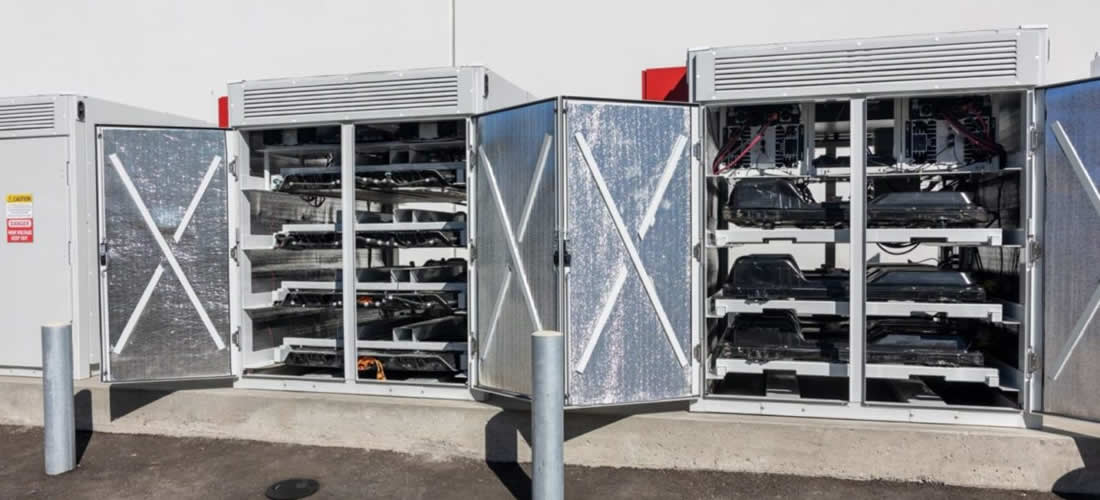Smartville has secured $5.9 million from the US Department of Energy to scale its second-life battery program.
As of 2021, global sales of electric vehicles had reached 16 million units, underscoring accelerating demand, said the International Energy Agency. The transportation energy transition has only just begun.
Most batteries retired from EVs still have about 70% of their capacity remaining, said San Diego-based startup Smartville, noting that this makes them an ideal candidate for second-life use. This is the opportunity that Smartville aims to seize, by repurposing EV batteries as grid-scale energy storage to store renewable energy.
“Our second-life energy storage product repurposes EV batteries to reliably store power from solar and wind,” said Antoni Tong, chief executive officer of Smartville. “The outcome is that the system can sustainably power our communities, lessening our dependence on external energy sources.”
The company announced it secured a $5.9 million grant from the US Department of Energy to scale this service. The grant came as part of a $75 million funding package made available through the Bipartisan Infrastructure Law, which awarded a total of 10 projects that advance EV battery recycling and reuse efforts.
Smartville’s MOAB product can hold between six to 10 battery packs with nominal ratings between 200 kWh to 500 kWh. The company’s proprietary suite of software, hardware and diagnostics comes with a performance guarantee for stationary storage, serving enterprise and utility customers.
“We realized early on that the only way to grow a real market for this type of technology is to be able to absolutely warranty or guarantee the performance,” said Mike Ferry, president of Smartville. “We validated our technology using battery modules obtained by disassembling EV battery packs, and we cycled modules of different chemistries from different automakers. As a result, we now have software and hardware that can use batteries of different states of health within the same system and we’re able to improve total system state of health over time.”
Ferry said Smartville sees benefits in focusing on repurposing battery packs, rather than performing disassembly and repurposing battery modules. The company said labor and cost for disassembly is prohibitive when reaching a megawatt-hour or gigawatt-hour scale.
Smartville said it will use the Department of Energy funds to accelerate the commercialization of its repurposing product. The company first plans to achieve UL certification for the technology and will follow that with a 4 MWh demonstration project. The pilot project will locate the repurposed battery with an existing central California power plant in an identified disadvantaged community.
Smartville was launched out of the University of California, San Diego, starting with a $2 million government loan through the Advanced Research Projects Agency – Energy program. The company said it will install another prototype system at the end of the second quarter with Southern Company. While Smartville has other early-stage projects in the works, it is focusing on certification, commercialization, and scaling its manufacturing in the coming year.
Source: www.pv-magazine.com
 En
En Cs
Cs